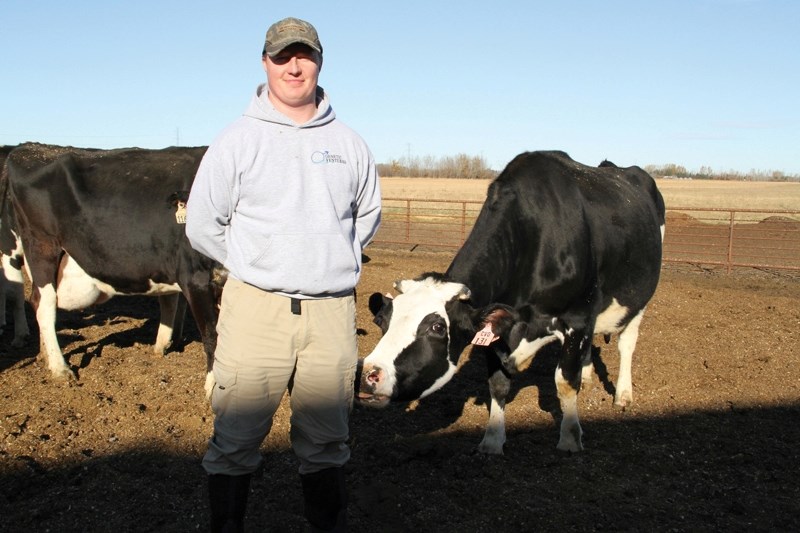Red Deer County dairy farmer Dustin Wintjes made the switch to organic milk production three years ago because he was looking for a more sustainable way of producing milk.ìI thought it was the right thing to do,î said Wintjes.ìI was beginning to question some of our practices.îAfter growing up on the conventional family dairy farm, Wintjes spent 10 years in California, studying for a dairy sciences degree and working in the big dairies there before coming back to Alberta.ìIt seemed that all the research was saying to use more and more input, more and more hormones, and the same thing in some of the herd health protocols: more antibiotics, different ways of giving the cows antibiotics, different places of administration and so forth,î said Wintjes, whose dairy farm is situated in the Springbrook area.ìI think it is very illogical to say with any degree of certainty that using all those products is guaranteeing the consumer a safe product in the end.îHe decided to get back to the basics and stopped using genetically modified organism feed, synthetic fertilizer, pesticides, herbicides and antibiotics.ìEverything I use is certified organic,î explained Wintjes.In fact, everything he uses has to be approved by the Canadian organic standards.ìThey keep track of anything that comes in contact with the cows,î said Wintjes.On top of that, not only does he get audited on animal welfare standards, just like conventional dairy farmers, but he also has to meet square footage, water, fresh air and food requirements.ìWe are required to graze 60 per cent of the forage during the grazing season,î said Wintjes.ìWe are also mandated through the Canadian organic standards to feed the cows a certain percentage of forage. We cannot feed the cows a lot of grain.îHe is convinced organic milk production is more sustainable for his cows.ìWhen you look at the herd statistics, compared to the conventional, there are not too many things in which we lag behind,î Wintjes said.ìProduction is a little off because we do not feed the cows much grain, but health statistics are usually just as good if not better than our conventional counterparts.îWhile Wintjes has been producing organic milk for three years, he has only been processing it for a year.ìWhen we started doing organic milk, we did not have any processor.îHowever, organic dairy farmers are catching up quickly.ìIn a short time, we went from nothing to roughly five million litres,î said Wintjes.The farmers' goal is to produce 10 million litres and Wintjes believe they are on track to make it.ìThere are some skeptics, but things are going quite well,î he concluded.



